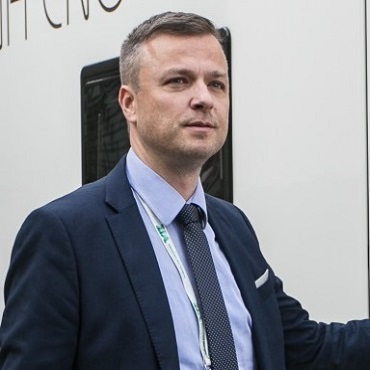Scientific Program

Special Session by Uros Zafosnik & Davorin Markovic
Simulation Centre, Slovenia
Title: Sim mobile unit in primary healthcare
Biography:
Uros Zafosnik is a Registered Nurse. He was working as head nurse of emergency services in CHC Maribor for four years before starting work in emergency services of CHC Ljubljana, where he worked for three years. Curently he is Head and Coordinator of SIM Centre now for five years. He is also international ITLS and MTS instructor and besides that he was involved in a working group designing standards for triage at Ministry of Health Slovenia. He is also a lecturer at Faculty of health sciences Novo Mesto.
Abstract
The team in family practice often meets life-risk patients. Simulation is an excellent way for health care workers to train their skills in a safe environment. It is an effective, ethical and safe way to practice theoretical knowledge. Trainees acquire experience in simulation in life threatening situation, how to approach acute situation and situations where decisions have consequences. This way we approach the clinical environment as close as we can. But sadly, learning with simulations in healthcare is usually not available to professionals. Contributing factors to this problem are the lack of knowledge and poor equipment combined with high education costs and time shortage in medical teams. We have developed a mobile simulation unit (SIM mobile) that will enable all medical teams in primary healthcare access to modern simulation equipment. We have used SIM mobile to conduct simulations in over 20 diferent locations in Slovenia (Comunity health centres, prehospital units). Participants were doctors of family medicine, nurses and EMT workers. The study was caried out from june 2018 to august 2018. SIM mobile was avaliable for 120 hours in 10 days. Total training time was 120 hours and was used 100% of the time by the participants of the study. SIM mobile provides opportunities for outstanding educational experiences that translate into better patient care and improved provider safety. A mobile simulation experience that can be brought to healthcare professionals in rural and frontier communities, thus reducing the need for providers to travel for training.
- Healthcare
- Clinical Simulation
- Surgical Simulation
- Medical Simulation
- Simulation in Nursing
- Critical & Emergency Care
- Healthcare and Nutrition
- Simulation in Ophthalmology
- Simulation in Dentistry
- Brain Simulation
- Occupational Healthcare
- Alternative Healthcare

